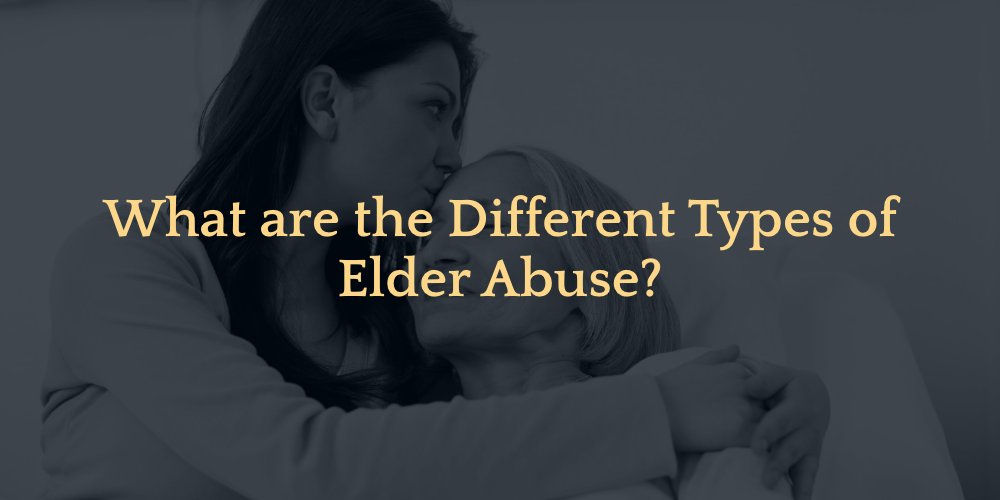Our elderly loved ones are often as vulnerable as young children, yet their decades of experience, work, and care mean they deserve the utmost respect and consideration of their dignity. No matter how carefully a family researches facilities in their area and within their budgets, elder abuse statistics remain staggering. In 2020 alone, there were 15,000 reported cases of nursing home abuse in the U.S. Worse, research suggests that for every reported case of elder abuse, approximately 24 cases go unreported. Many elderly nursing home residents are physically or cognitively unable to report their own abuse or neglect.
Elder abuse occurs in nursing homes, assisted care facilities, hospitals, and in private residences. It’s important to know the most common types of elder abuse and to recognize the signs so you can protect your own elderly loved ones. An Arizona elder abuse attorney can help navigate your legal options if you have been negatively affected.

Physical Abuse of the Elderly
Physical abuse is a sadly common problem in nursing home facilities. Seniors may be victims of abuse by caregivers, staff members, and by other residents. Poor hiring requirements and lack of supervision in nursing homes contribute to abuse statistics. Physical abuse is an intentional act meant to inflict pain and intimidation. Common signs of physical abuse include:
- Bruises and lacerations
- Torn clothing
- Broken or missing personal items such as glasses, dentures, and hearing aids
- Bloodstains on bed sheets and/or clothing
- Cigarette burns
- Chafing around the ankles and wrists
- Withdrawal and changes in mood and personality
- Reluctance to speak in front of caregivers
If you see any signs of physical abuse in an elderly family member, it’s important to report it to the authorities, the nursing home staff, and your local Adult Protective Services.
Signs of Neglect in Elderly Residents of Care Facilities
Neglect in nursing homes and long-term care facilities is an even more common problem than physical abuse. Understaffed facilities, poor hiring methods, and frequent staff turnover contribute to problems of neglect. Nursing home neglect is the failure or refusal to provide basic care to an elderly resident. Signs of neglect include:
- Sudden weight loss and other signs of malnutrition
- Dehydration
- Poor hygiene
- Unclean/unkempt bedding, clothing, and environment
- Inconsistent medication practices/stolen medications
- Bed sores
Neglect can be as deadly and demoralizing to elderly residents as intentional physical abuse. Report any suspected cases of elderly neglect to authorities.
Financial Abuse of the Elderly
Elderly people are vulnerable targets for those seeking to financially exploit them. Signs of financial abuse of the elderly include:
- Missing valuables
- Unexplained bank withdrawals and financial transactions
- Changed passwords and blocked access to accounts and financial records
- Unpaid bills and unexplained financial problems
Your elderly loved ones worked hard to pay for their retirement and eventual care in long-term care facilities. Financially exploiting the elderly is an egregious crime.
Emotional Abuse in Elder-Care Facilities
The World Health Organization reports that 1 out of 3 nursing home caregivers in anonymous surveys admitted to committing acts of emotional abuse. Emotional abuse includes verbal assaults, insults, bullying, threatening, intimidating, or otherwise inflicting emotional distress. Signs of emotional abuse include:
- Withdrawal
- Depression
- Anxiety
- Personality and mood changes
- Reluctance to speak in front of caregivers
Emotional abuse is as real and damaging as other forms of elder abuse. Around 67% of elderly emotional abuse victims are women. Those who have previously experienced emotional abuse are more likely to become victims of this type of abuse during their senior years.
Sexual Abuse of the Elderly
Around 7% of reported cases of elderly abuse are sexual. Elderly nursing home residents may experience sexual abuse by caregivers or other residents within their care facility. Signs of sexual abuse include:
- Bruises on the breasts, buttocks, and private parts
- Bleeding from private parts
- Chafe marks around wrists and ankles
- Emotional withdrawal and depression
Sexual abuse of the elderly is an insidious and under-reported problem. If you notice any signs of sexual abuse in an elderly loved one, it’s important to report it immediately.
